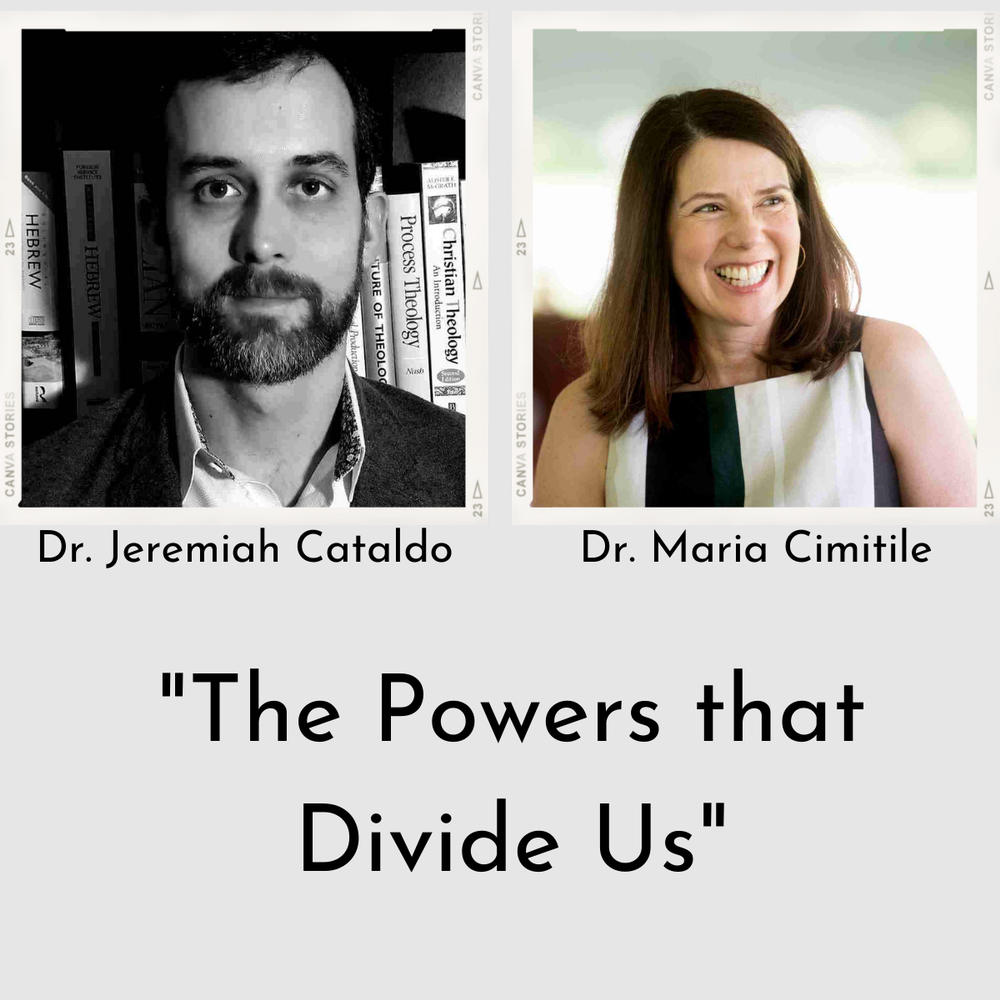Sequence Spotlights
Dr. Cataldo and Dr. Cimitile

How did the two of you come together for this sequence, and how do you see your academic backgrounds complementing one another for this sequence topic?
Dr. Cimitile recently joined the Honors faculty and was exploring different courses to teach. Dr. Cataldo invited her to think about working on a sequence together. Our backgrounds are very complementary; Dr. Cataldo, a scholar of religion by training, analyzes intersections between religion and society, especially along the lines of power and identity, while Dr. Cimitile, who is a philosopher by training, explores the epistemological and ontological emergence of inequities in western culture. In discussing our shared interests, we found our intellectual curiosity sparked by the work of the other and knew that we wanted to share our excitement of this with students.
How would you describe the main approach you’ll take in the sequence? What kinds of readings and assignments are there? Will there be any out-of-class activities?
We will do close readings of primary and secondary texts, discuss systems of power and inequality and their presence in the social world, and unpack modern controversies and how they impact our everyday lives. Dr. Cimitile will facilitate discussions of feminist theories that look at both patriarchal and race-based biases that inhibit human flourishing. Dr. Cataldo will facilitate discussions on the influence of cultural and religious traditions in issues of power, class, gender, race, and citizenship. We will have informal events that explore different theories of power and how it impacts modern daily life (e.g., movies and other events).
What do you expect students, regardless of major, to take away from the sequence?
It is, without exaggeration, true that the course will be life-changing for many students. Power relations are structured to be hidden. When they are revealed many of us are profoundly changed in our values and aspirations. It is with great care that we enter these discussions so as allow each student to have the intellectual and existential journey that is right for them. At the end of the course, we hope students will feel both knowledgeable and empowered to be engaged citizens that recognize themselves as active participants in society. We all have the ability to make positive change once we understand the mechanisms of power and how they suppress and liberate us.
Share this spotlight
Return to the listing of sequence spotlights.
